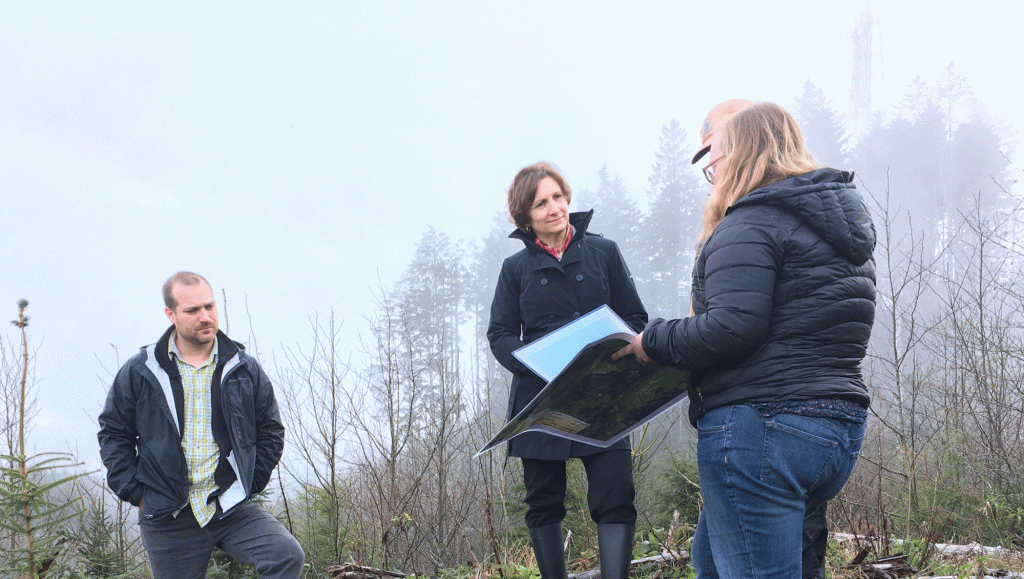Representing the Outdoors is a series dedicated to interviewing policy makers about outdoor issues. The Co-op Journal takes a nonpartisan approach to interviewing elected officials. If there is a Congressperson who advocates for the outdoors that you’d like to see interviewed here, please let us know in the comments below.
The views and opinions expressed in this interview are those of Representative Bonamici (D-OR) and do not necessarily reflect the official position of the Co-op Journal or REI.
What’s one of your most memorable outdoor experiences, and why?
I will always remember camping with my husband and two children in Yellowstone in the summer. The scenery in the park is stunning, and it was hot and sunny during the day. At night, however, the temperatures dropped below freezing. We stayed in a tent, and when we went outside in the morning we noticed that most of the other people around us were in heated campers. We warmed up when we built a fire and made breakfast.
What’s your favorite piece of outdoor gear and what do you love about it?
I like hiking shorts with lots of pockets. They are both comfortable and practical: You can fit many of the supplies you need in the pockets, keeping your hands free for hiking.
What are the outdoor places in your state or district that people should visit?
Northwest Oregon is home to the pristine Oregon Coast, abundant forests, a flourishing wine country and so much more. It is impossible to choose only one or two favorite spots to enjoy the outdoors, but I can suggest a few starting points: Ecola State Park, where you can relax on the beach or explore a coastal forest; Hoyt Arboretum, where you can see trees and shrubs from all over the world; Forest Park, where you can hike through Portland’s dense urban forest; the Tualatin Hills Nature Center, where you can learn more about local wildlife or go for a stroll; and Scappoose Bay, where you can get out on the water or follow nearby trails.
What are the most pressing conservation and stewardship issues our country currently faces?
My greatest concerns are climate change, declining biodiversity, oil and gas drilling, and attempts to sell or transfer public lands.
The consequences of inaction on climate change will be serious within our lifetime. At a time when the world is facing record heat waves and droughts, wildfires and hurricanes of unprecedented size and frequency, rising sea levels, and a surge in other extreme weather patterns, we must work to address the growing threat and protect our planet for future generations. One of my top priorities as a member of Congress is to promote environmental conservation and mitigate climate change.
The Intergovernmental Science-Policy Platform on Biodiversity and Ecosystem Services recently released a summary of their first Global Assessment Report. The findings are stark; the health of our ecosystem is rapidly deteriorating and if we do not act soon, the consequences will likely be irreversible. As many as one million plant and animal species are at risk of extinction—more than any other period in human history.
I am extremely concerned about efforts to open our nation’s treasures to the fossil fuel industry. I am strongly opposed to opening our public lands to oil and natural gas drilling. I have repeatedly fought back against fossil fuel industry and will continue to do so.

Photo Courtesy: Rep. Bonamici (D-OR)
I will also continue to oppose efforts to sell or transfer public lands to state ownership, and will fight to protect our nation’s natural resources so that our public lands may be enjoyed and preserved for future generations.
What role can the outdoors play in promoting health and well-being among U.S. citizens?
Exploring the outdoors allows us to connect with nature and appreciate the resources our planet provides. We must do all we can to safeguard access to clean air and clean water to maintain public health. These are among our most precious resources, and those who enjoy the outdoors can help spread awareness of how to behave responsibly.
What do you see as the biggest threat to public lands and waters today?
Climate change: It’s a national emergency and existential threat that is already having irreparable damage on our public lands and waters. We need to reduce emissions and transition to a 100-percent clean energy economy to protect our cherished wild places for future generations.
Why is access to public lands, parks and waters important to you?
Protecting wilderness areas reflects Oregon’s best values—environmental protection, stewardship of our land and community partnership. By protecting wilderness, we are protecting the natural beauty and robust habitats fish and wildlife depend on for survival. Wilderness preserves the unspoiled forests and streams for future generations of Oregonians.
What impact does the outdoor recreation economy stand to make nationwide?
Clean air and water are critical to human and environmental health, but also contribute to our nation’s economic growth. The climbers, hikers, hunters and anglers who venture into public recreation land spend time and money in hotels, campgrounds, restaurants and stores in nearby communities, providing an economic boost for local economies, and visitors to our national parks and monuments share in part of our state and country’s rich history. Oregon is fortunate to be home to many of the leading outdoor recreation businesses. I worked with Congressman Don Beyer on the Outdoor Recreation Jobs and Economic Impact Act, which was signed into law and recognizes the important contributions the outdoor recreation industry makes to our economy.
What’s a policy solution for the outdoors you’re working on?
As the only member of the Select Committee on the Climate Crisis from the Pacific Northwest and co-chair of both the House Oceans Caucus and the Congressional Estuary Caucus, I am actively working to identify nature-based solutions to climate change. Tidal salt marshes, seagrass meadows and mangrove forests can sequester and store significant amounts of carbon from our atmosphere. I’m working on legislation to strengthen blue carbon research and support the conservation and restoration of coastal wetlands.


